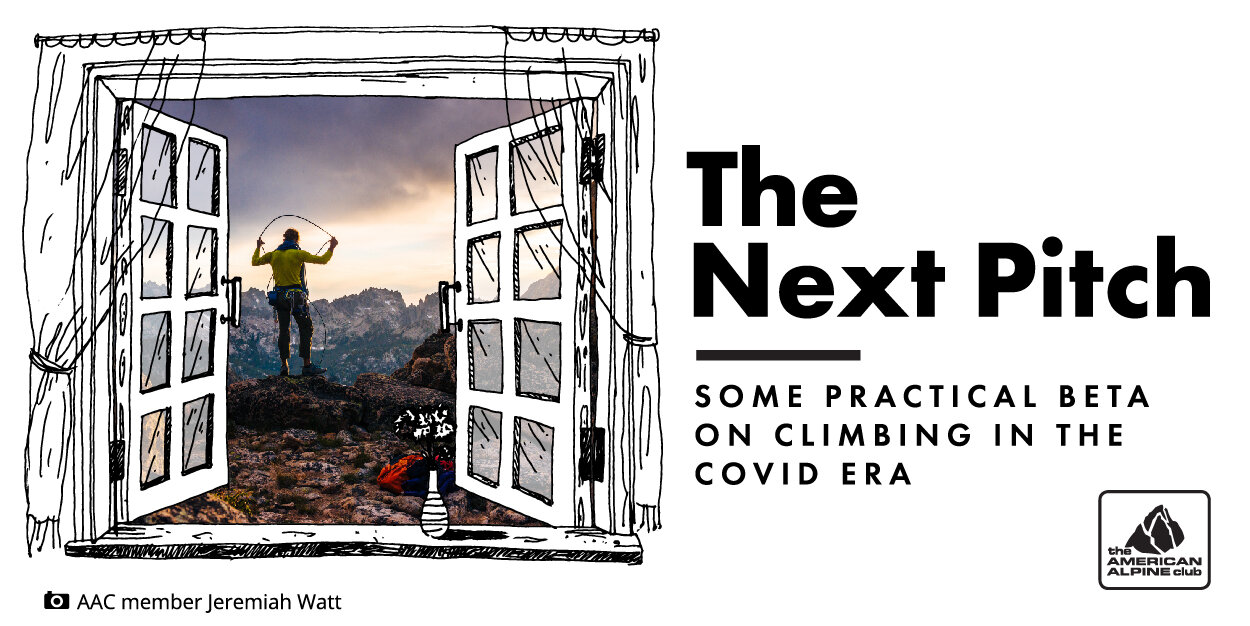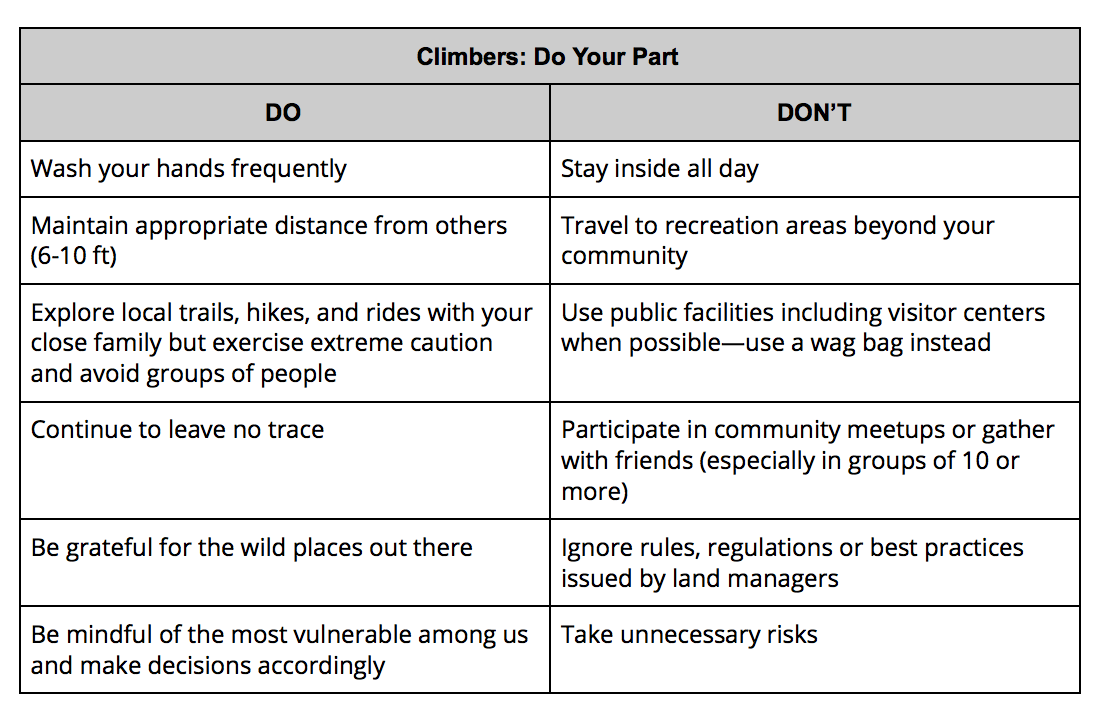What is therapy? What is a therapist supposed to do? How do you find one? How do you know if you need one? How do you know if yours is any good? Societal stigma around mental health makes the answers to these questions difficult to find.
And yet, mental health is slowly making its way into the mainstream conversation in climbing communities. It’s coming up around death, loss, trauma, risk—all in some ways inherently tied to the particular experience of climbing. It’s also coming up around more insidious, silent struggles like body image, performance, depression, and anxiety. What’s not yet mainstream is how or when to engage in therapy, or conversations about what exactly therapy is.
I often talk with people about how to find a therapist, choose a therapist, or where to start with therapy. This list of thoughts is a summary of those conversations, with special thought given to climbers and the climbing community. I think the climbing community has an inherent advantage in addressing mental health, in that it is such a community.
I have, in no other domain of my life, walked up to a stranger and so easily become their friend. The stoke, the excitement, the welcoming energy is overwhelming. And yet, we still suffer. We suffer the same as anyone else, and in some ways, uniquely, as a result of risks we’re willing to take to experience the wild, boundless joy of climbing.
I know about the wild, boundless joy. And, as a therapist, I know about the darker, shadow-side of things. Climbers, in my experience, also have access to an extraordinary range of emotional experience—from the darkest shadows and doubts to the most profound delight. Therapy can expand and restore access to this range. It can alleviate suffering and open new mental space for connection and relationships. It can help you be more present and authentic in your life.
What is Therapy?
At its core, therapy is a relationship. The relationship can be between a therapist and a client, or a therapist and several clients in a group. It can look really different, depending on the setting and the people involved. What happens in therapy, too, can look really different. But the main idea is that through this relationship, you develop a space where you can explore yourself—your identities, experiences, and relationships—and through this exploration, grow and change. Sometimes this change is necessary because of pain or suffering, and sometimes it’s voluntary. Sometimes therapy is incited by a traumatic event or loss. Sometimes someone wants a change, or feels something is off in their relationships. Sometimes people struggle making decisions or don’t feel that they don’t know themselves. There are infinite reasons to seek therapy, and none is inappropriate or wrong.
What is a Therapist?
Think of your therapist as your mental belayer. A therapist is your partner, your supporter. Their job is to help you, and even though they’re a person in their own right, during the process of therapy, you are their focus. They can’t climb for you, or even really with you, but they can make sure you don’t fall too far. A key part of therapy is trusting your therapist, which is why choosing one matters. This doesn’t mean you’ll like them all the time, or that they’ll never disappoint you, but the strength of the therapeutic relationship is one of the strongest predictors of good outcomes. So find someone with whom you feel a genuine connection, for whatever reason that might be.
You Get to Choose Your Therapist
This may seem obvious, but it’s incredibly important, and in times of stress or pain, it’s easily overshadowed by other things. You always have agency in your own mental health. This agency begins with choosing a therapist, and continues in every session. Don’t like the way things are going? Say something. Feel uncomfortable? Mention it. This is often easier said than done because of the power dynamics in therapist/client relationships, but that’s why it’s worth reiterating. Hopefully, in an effort to address this dynamic, your therapist will ask you if it’s going okay and provide opportunities for you to give feedback. If you still feel like it’s not a good fit, find another therapist. That’s totally okay.
Read Beneath Their Profile
Therapists write blurblettes about themselves for potential clients to find, and many of them are similar. We’re all required to meet more or less the same training standards, etc., so if someone is a therapist, chances are they’re going to have a lot in common with other therapists. Except we’re all individuals, too. Search for that individuality. In what field was their undergraduate degree? Do they say anything else about themselves? Would it change something if you knew they shared some axis of your identity? Finding a provider through the Climbing Grief Fund is a great example. At baseline, you know they know something about climbing. Things like that can be important points of connection, and can help you feel safe and understood.
Ask for a Consultation
Since fit matters so much, ask to talk to several therapists in a more casual way before starting work together. It’s very often a free service and can give you a lot of information. Talking to more than one can help you start to suss out the differences if you’ve got no idea what you want in a therapist.
Think About What You Want Therapy to Be
Therapy is very rarely a back and forth exchange of sequential childhood traumas and silent, thoughtful Mhms. Sometimes it is, but often not. Therapy is collaborative and generative and exploratory. It’s about curiosity and fantasy and possibility. Thinking ahead of time about what it is you’d like to get out of therapy, even if it’s a simple or vague idea, can be useful in directing the work. Maybe you don’t want to think about ____ anymore, or you feel lonely. The answer to this question might be obvious, or it might not. Either way, it can help you in your search for a therapist, especially if you’re looking for something in particular, like someone who specializes in grief or anxiety or postpartum issues.
Be Prepared—Therapy Will be Work
Therapy, healing, progress, change, growth. However you want to think of what it is you’re working toward in therapy, it’s probably going to be hard. You may feel worse before you feel better. The most rewarding projects often progress this way, too. This is why you need your therapist to be the most psyched and supportive mental-belayer ever. In the rough moments, they’ll make sure you don’t quit.
What If I Can’t Afford It
This is a real question. Insurance and media portrayals often make access to therapy seem like a luxury, but caring for your mental health is just as important as taking care of your physical health, and there are affordable options.
If you have insurance, call and talk to someone about how your benefits apply to therapy (they often call it mental health or behavioral health). There may even be some reimbursement if your therapist is out of network.
If you don’t have insurance, many out-of-pocket providers offer sliding scale fees based on income, and some community mental health centers offer even more affordable sliding scale options. Group therapy can also be a cheaper option—it’s is a super cool, lesser-known modality of treatment where you get to do your own work supported by a group, and witness and support the work of others. Finding these resources may take some research, but they are out there.
And if it’s just financially impossible to spend any money on therapy right now, that’s okay too. Many communities offer 12 step programs. These meetings are always free and often frequent, and though the model is based on recovery from substance use, the recovery-oriented principals have been applied to lots of different mental health challenges like depression and anxiety.
I’d also still recommend thinking about what it is you want to work on, and searching for books or other free resources. The CGF has some psychoeducation here and resources here, and there are others, gathered by the practice where I work, here.
Outside of any treatment, you can take care of yourself in small, everyday ways that impact your emotional wellbeing. You can climb, eat well, and sleep. You can make small changes. You can sit in the sun, have a dance party, forgive yourself. You can do whatever moves you. You can seek out human connection that feels authentic, and ask others for help when you need it.
There is Nothing Wrong With You
For anyone seeking therapy: there is nothing wrong with you. Humans struggle. Being alive is complicated, unexpected, and sometimes painful. We are all impacted by our environment and our relationships. Feeling as though one needs help is not a sign of weakness. Vulnerability is not a sign of weakness. Thinking you might need therapy is not evidence of impairment. We all need support sometimes.
Climb Hard and Feel As Much As You Can
I sincerely believe it’s possible to do both.


























